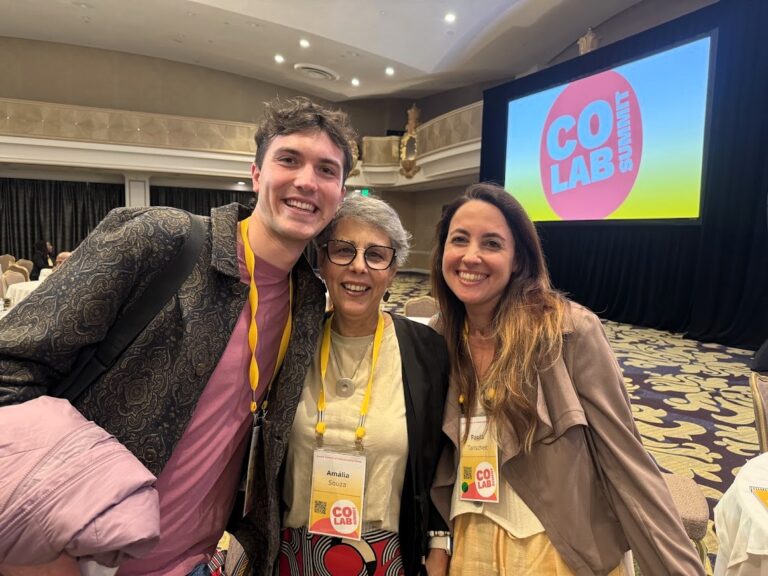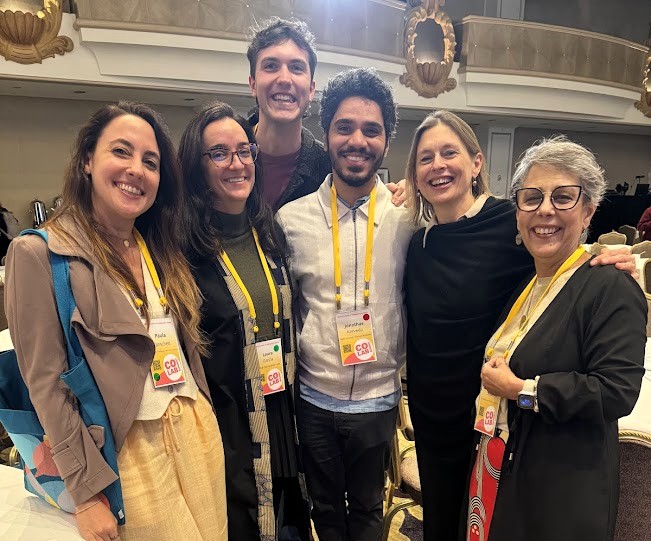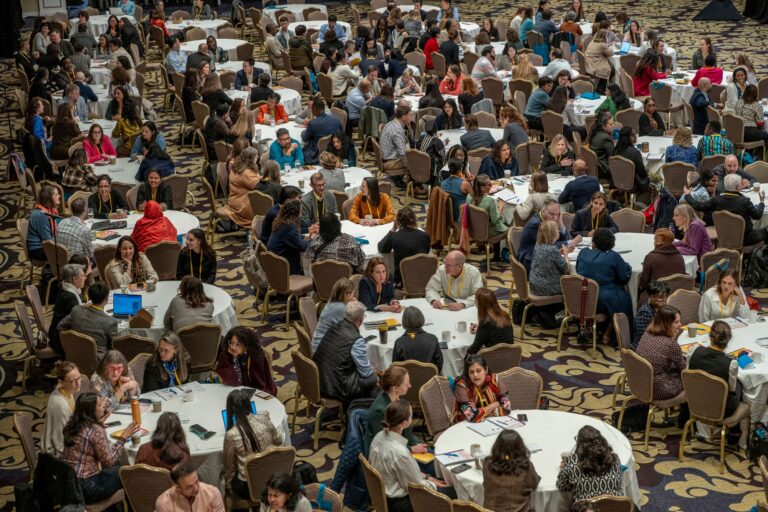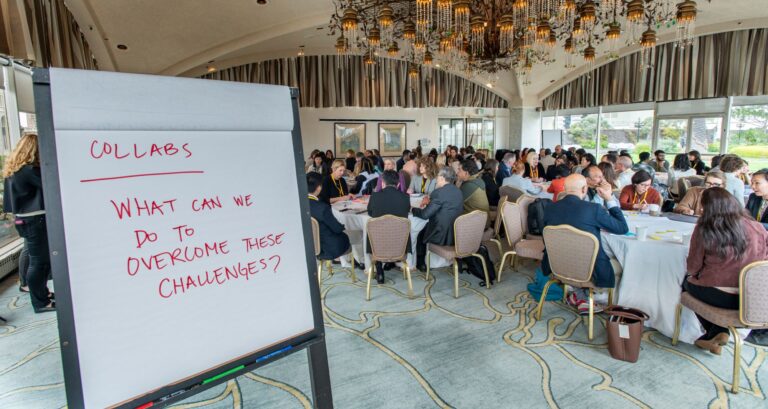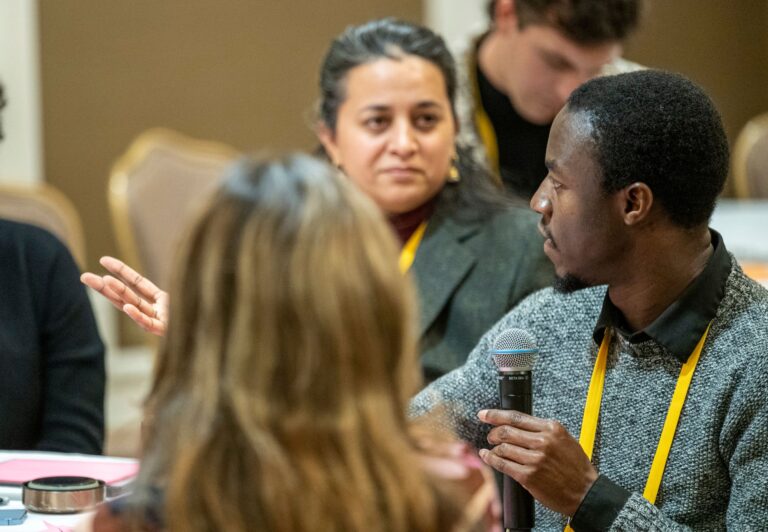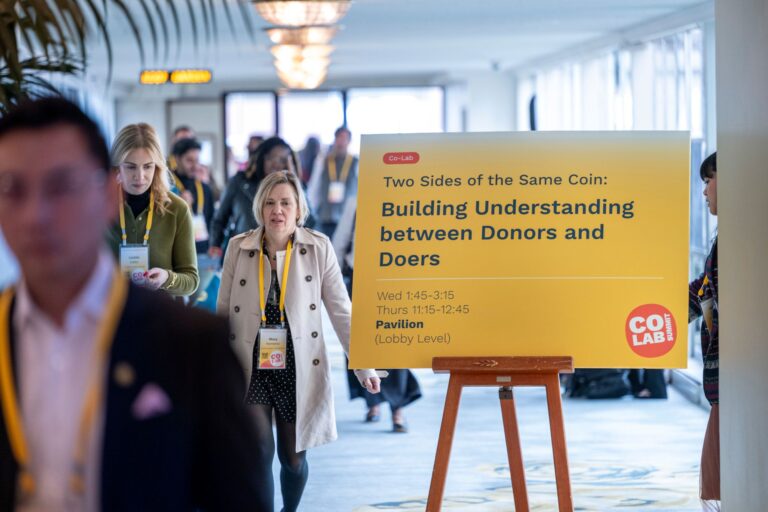Funders and frontline organizations gathered in San Francisco to reflect on collective action.
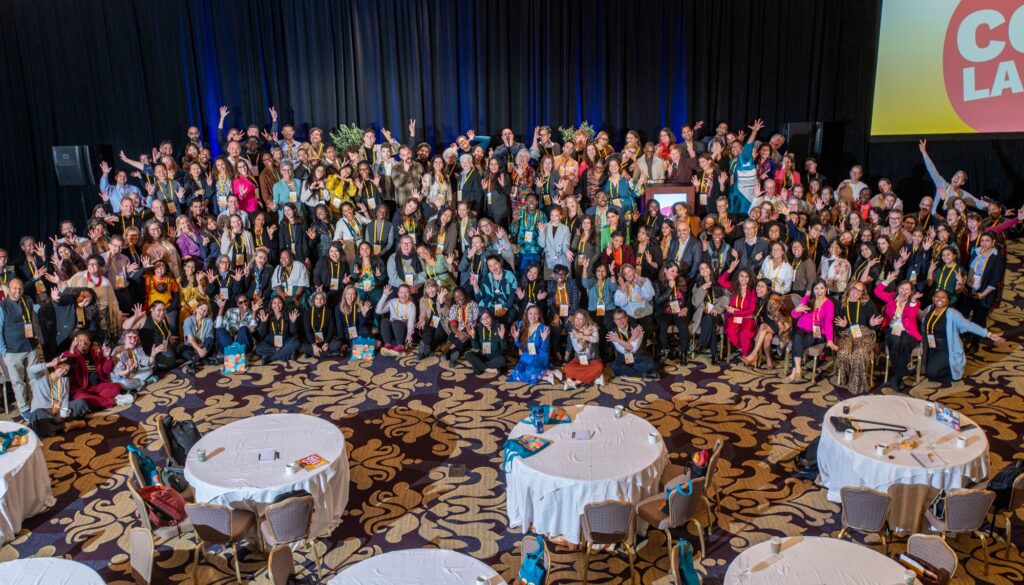
Alianza Socioambiental Fondos del Sur participated in the Global Summit of Collaborative Funds – CoLab Summit 2025, held in San Francisco from March 11 to 13. Organized by the Bill & Melinda Gates Foundation and Philanthropy Together, the event brought together around 350 participants, including representatives from collaborative funds, individual donors, and strategic organizations.
Throughout the two-and-a-half days of discussions, several recurring and interconnected themes emerged, particularly regarding the power dynamics between donors and collaboratives – a broad term used to describe different philanthropic models that bring together funders and frontline organizations, creating shared funding spaces aimed at driving collective action.
One of the key takeaways was the urgent need to reassess how power and funding are distributed in philanthropy. Local funds and community organizations continue to face significant barriers to reaching resources as decision-making and financial flows remain highly centralized among large donors and institutions. These barriers reflect deep power imbalances determining which issues receive funding, whose strategies are legitimate, and how success is defined.
Philanthropy must go beyond financial support and critically examine its own role in maintaining these structures. Rather than imposing top-down decision-making models, funders should recognize and trust local leaders, working alongside communities and social movements to ensure that resources reach those who need them most, in ways that align with their priorities and lived realities through more flexible and accessible funding models.
Additionally, the ongoing discussion around measuring impact is shaped by external expectations—often dictated by donors—rather than by the realities of community-led change. Conventional metrics frequently fail to capture the depth and complexity of locally driven transformation, reinforcing the need for alternative ways to evaluate success—ones that emerge from the priorities and lived experiences of those directly involved.
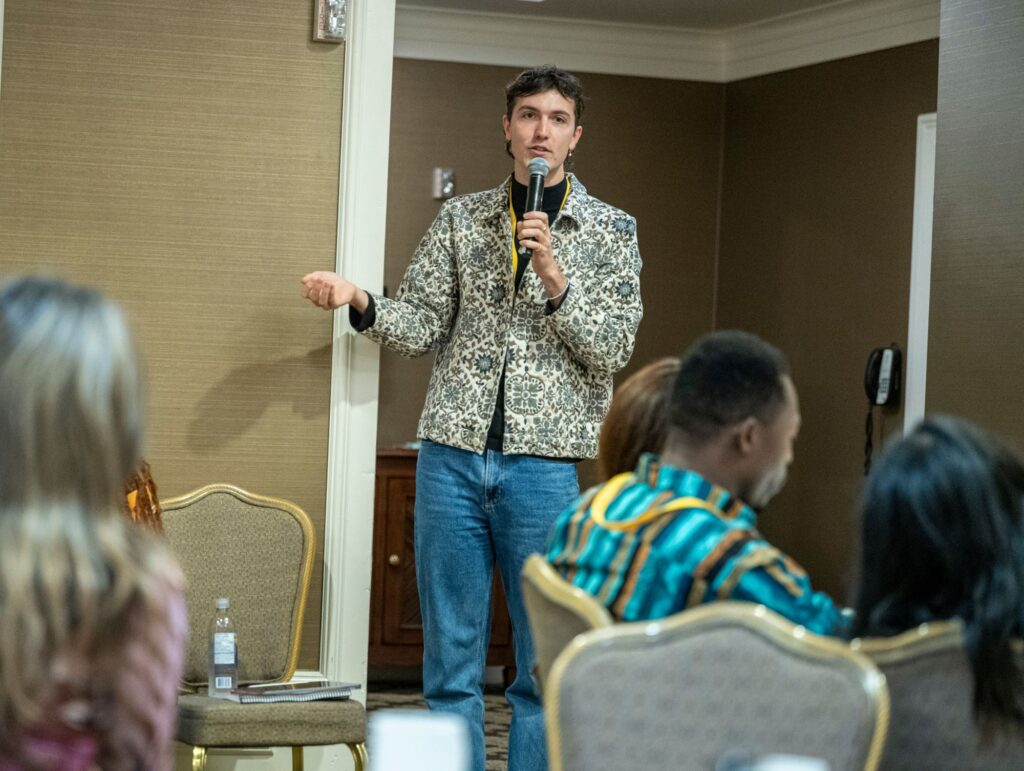
Nathan Méténier, from the Youth Climate Justice Fund (YCJF), was one of the speakers at "The Youth Factor: Scaling Youth Leadership for Innovative Collaborations," a participative session of the event. In this session, he joined partners from Green Africa Youth Organization (GAYO), FRIDA | The Young Feminist Fund, and FES (Finance Engage Sustain) The Youth Harbour to lead discussions on the power of intergenerational collaboration in driving youth-led socio-environmental solutions. Participants explored myths, challenges, and solutions to overcome the barriers faced by youth-led organizations and funds.
Rethinking support in times of crisis
The current global political landscape added another layer to the conversation. As crises become more frequent and political shifts reshape priorities and funding flows, many frontline organizations face increasing uncertainty. With resources becoming more unpredictable, it is clear that philanthropy must provide both funding and structural and sustainable support.
The event reinforced that transforming philanthropy requires more than good intentions—it demands a genuine commitment to shifting power. While there is momentum for change, philanthropy continues to operate within frameworks that do not always fully reflect the realities and leadership of the Global South. Spaces like the CoLab Summit offer opportunities to raise questions and challenge these paradigms, but much remains to be done to ensure that collaborative funding truly reflects the needs, strengths, and priorities of locally led efforts in the South.
We attended the event to engage in conversations that connected us across regions, foster collective learning, and deepen the understanding of how local funds can strengthen community leadership—ensuring that local organizations receive the support they need to respond to crises with agility and equity.
Keeping these conversations alive, expanding them, and turning them into concrete commitments is essential for strengthening the collaborative philanthropy ecosystem and driving meaningful, long-term change.
